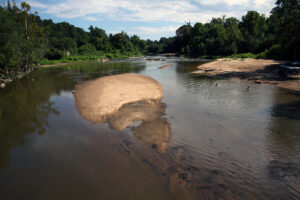News
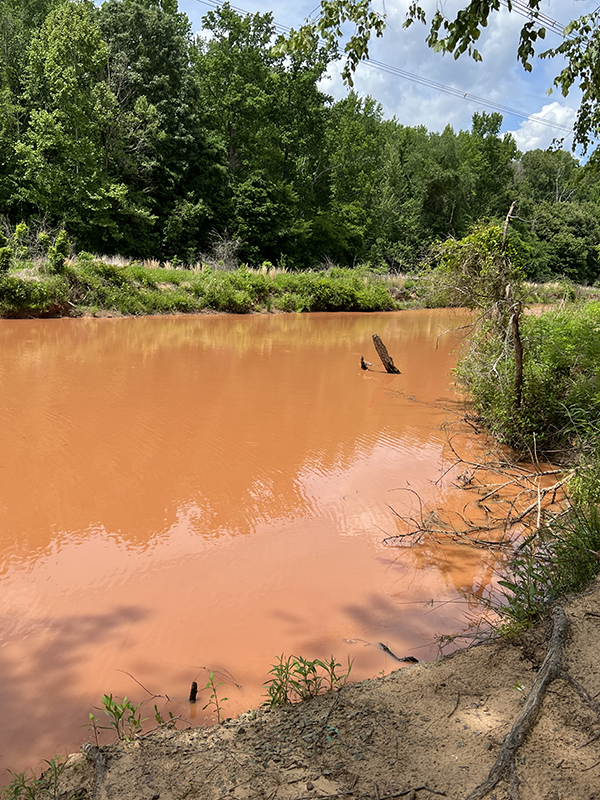
Data from the North Carolina Department of Environmental Quality backs up what Sound Rivers’ Neuse Riverkeeper Samantha Krop already knew: Lick Creek has a sedimentation problem.
“DEQ has gone out to the sites that we have visited in the Lick Creek watershed and have their own results of sampling for the first two rounds,” Sam said. “Those results support the findings that we have been documenting since last fall: that there are levels of turbidity far above state standards in waterways that are being impacted by land-altering developments ongoing in the area.”
Because Same has been reporting her results to DEQ, and community members have also reached out to the state agency, DEQ investigated. Now, the Division of Water Resources has passed of its findings to the North Carolina Division of Energy, Mining and Land Resources, which is responsible for sediment and erosion control oversight. DEMLR will do its own on-site analysis to determine where the sediment is coming from, then meet with DWR to determine a plan for enforcement.
“In the meantime, we’re continuing to record these issues and will be until this ongoing problem is addressed,” Sam said.
Get the background on the Lick Creek development issue here.
Related News
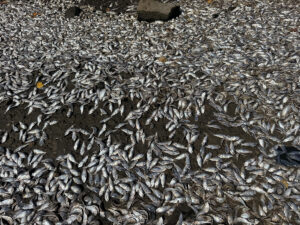
Neuse fish kill expected to extend beyond holiday weekend
July 3rd 2025
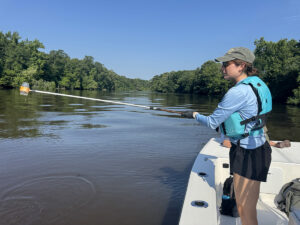
Swim Guide fails prompt Maple Cypress investigation
July 3rd 2025

Riverkeeper, town partners root out source of Smithfield sediment pollution
July 3rd 2025
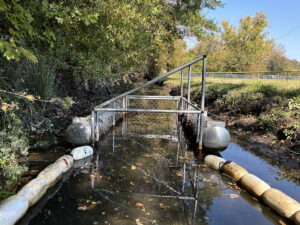
Trash trap No. 12 approved for Smithfield
July 3rd 2025

Sunset River Paddle fundraiser boosts Water Quality Fund
July 3rd 2025

Riverkeepers host quarterly Water Watch meeting
July 3rd 2025
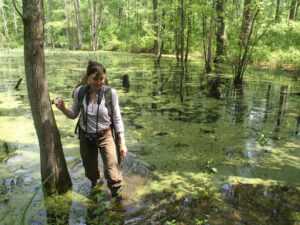
Public hearing will determine the fate of many NC wetlands
June 26th 2025
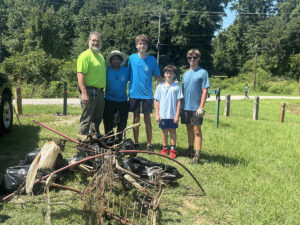
Clayton gets first official trash-trap cleanout
June 25th 2025
